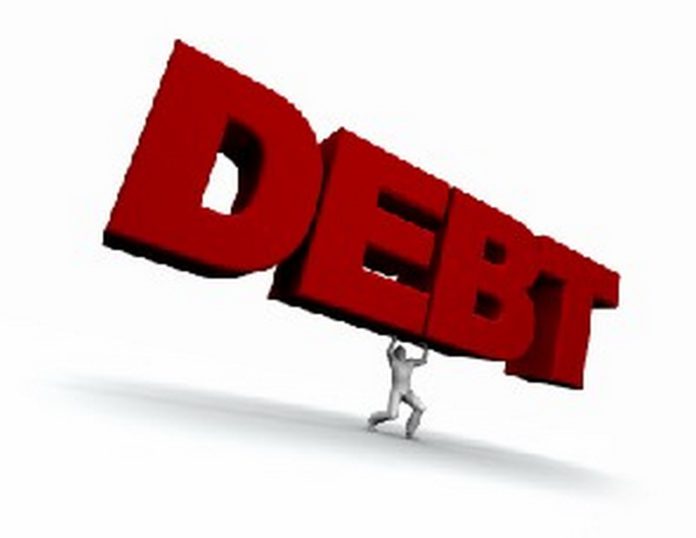Ghana’s public debt increased by GH¢46.4 billion in the first two months of 2024 to hit GH¢658.6 billion ($53.1 billion), data from the Bank of Ghana has revealed.
The total public debt stock of the country is equivalent to 62.7% of Gross Domestic Product (GDP).
According to the Central Bank’s May 2024 Summary of Economic and Financial Data, the country’s debt ended 2023 at GH¢611.2 billion, but shot up to GH¢626.0 billion in January 2024 and subsequently to GH¢658.6 billion in February 2024.
The surge in the public debt stock was due to the depreciation of the cedi during the period and the increased borrowing by the government on the domestic market.
While the domestic debt went up by GH¢18.5 billion in the first two months of 2024, the external debt increased by GH¢28.9 billion, largely as a result of the cedi depreciation.
The data from the Central Bank revealed that the external component of the total public debt stood at $30.6 billion (¢350.3 billion) in February 2024. This represented 36.1% of GDP.
In terms of the domestic debt, it stood at GH¢278.7 billion in February 2024, about 36.1% of GDP.
The report also revealed that the government’s fiscal operations were on target as the deficit-to-GDP stood at 2.6% in the first quarter of 2024. This against a deficit of 1.8% of GDP during the same period last year.
The primary balance was also a deficit of 1.4% of GDP in March 2024.

Ghana suspended interest payments on loans to its external creditors in December 2022, following the economic challenges faced by the country.
The country has received a Memorandum of Understanding from its bilateral creditors regarding the restructuring of a component of the external debt.
It is currently negotiating a deal with the bondholders after successfully negotiating a deal with the bilateral creditors in January 2024.
ALSO READ:

